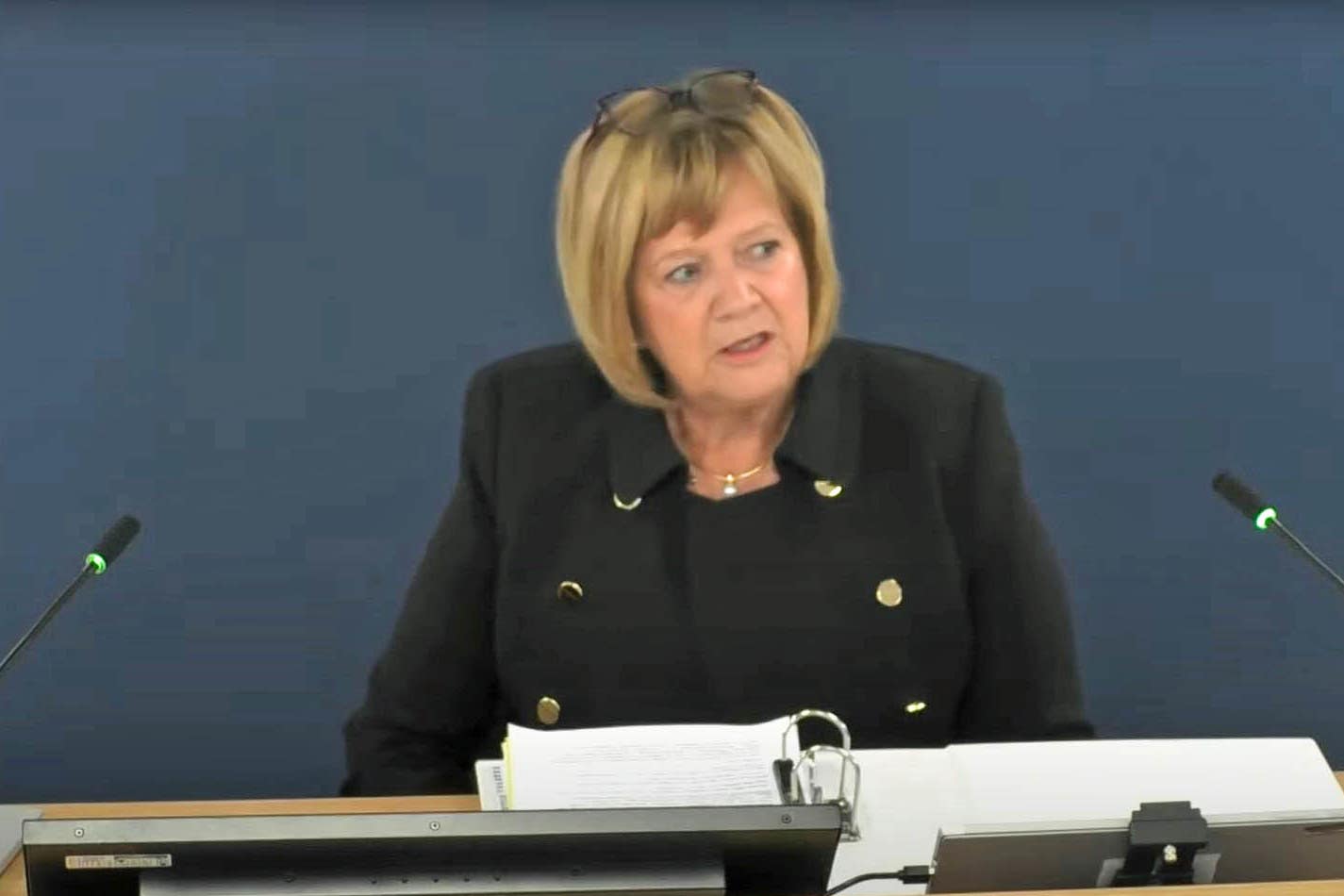Cabinet Office refusal to hand over evidence ‘corrosive’, Covid Inquiry hears
Sam Jacobs, representing the Trades Union Congress, said the department’s position ‘smacks of having something to hide’.

Your support helps us to tell the story
From reproductive rights to climate change to Big Tech, The Independent is on the ground when the story is developing. Whether it's investigating the financials of Elon Musk's pro-Trump PAC or producing our latest documentary, 'The A Word', which shines a light on the American women fighting for reproductive rights, we know how important it is to parse out the facts from the messaging.
At such a critical moment in US history, we need reporters on the ground. Your donation allows us to keep sending journalists to speak to both sides of the story.
The Independent is trusted by Americans across the entire political spectrum. And unlike many other quality news outlets, we choose not to lock Americans out of our reporting and analysis with paywalls. We believe quality journalism should be available to everyone, paid for by those who can afford it.
Your support makes all the difference.The Cabinet Office’s refusal to hand over requested documents to the UK Covid-19 Inquiry is “corrosive” and will damage confidence in the process, the opening hearing has been told.
Sam Jacobs, a lawyer representing the Trades Union Congress (TUC), said the department’s position “smacks of having something to hide”.
He warned the “infighting” between Boris Johnson and the Government “jars with the terrible losses” suffered during the pandemic.
Government lawyers have appeared to suggest the former prime minister’s notebooks could be withheld to stop him handing over unredacted evidence to the inquiry.
Ministers are challenging chairwoman Baroness Heather Hallett’s request for the materials in the courts by seeking a judicial review.
My Lady, the infighting jars with the terrible losses described in the impact film that we watched this morning
Mr Jacobs said on Monday it was a “matter of regret” that the inquiry had started “under something of a cloud”.
“It (the Cabinet Office) is refusing even to return Mr Johnson’s diaries to him as it knows Mr Johnson intends to provide them to the inquiry,” he said.
“Mr Johnson himself has been complaining to the Times newspaper of the Cabinet Office foot-dragging in response to the inquiry, of wasting public time and money by delaying the inquiry, and of deliberately frustrating the inquiry’s work.
“My Lady, the infighting jars with the terrible losses described in the impact film that we watched this morning.
“The position taken by the Cabinet Office is corrosive because it damages confidence in this inquiry. It smacks of having something to hide – of fighting tooth and nail to avoid to avoid revealing all to the inquiry.
“What the public want to know is … whether the Cabinet Office can approach this inquiry, not just now but going forward, with the spirit of openness and candour that we deserve.
“Those in the cabinet either have the will to respond openly to this inquiry, or they do not.”
The TUC was also among participants to draw a link between austerity and the ability of public services to prepare for the pandemic.
More than a decade of spending cuts stretched resources to “breaking point” and almost eradicated any meaningful service able to enforce health and safety in workplaces, Mr Jacobs said.
Mr Johnson sought to provide reassurances that the Health and Safety Executive (HSE) – the primary regulator – would be carrying out spot inspections, but these proved “vacuous,” he told the inquiry.
Austerity had left the HSE “so depleted” in its resources that the number of reports it received vastly exceeded the number of checks completed, Mr Jacobs said.
By early June 2020, the Health and Safety Executive had received more than 6,000 additional concerns from workers about social distancing and other pandemic-related matters, the inquiry heard.
But this resulted in just 47 physical inspections of workplaces and one prohibition notice, he said.
Robin Allen KC, representing the Local Government Association (LGA), echoed the TUC’s concerns.
Austerity also “inevitably” affected the ability of councils to plan and prepare for the pandemic as well as the resilience of services, he said.
“Across these points, we expect the inquiry to find that all local government services have been impacted by austerity. This, as we’ve heard, has gone on for a decade. The reductions in funding saw councils lose 60p out of every pound of funding,” Mr Allen told the inquiry.
“That must be seen against rising demand in key services such as adult and children social care, and homelessness support. Inevitably, this impacted the ability to plan, to prepare and resource and the overall resilience of services.”